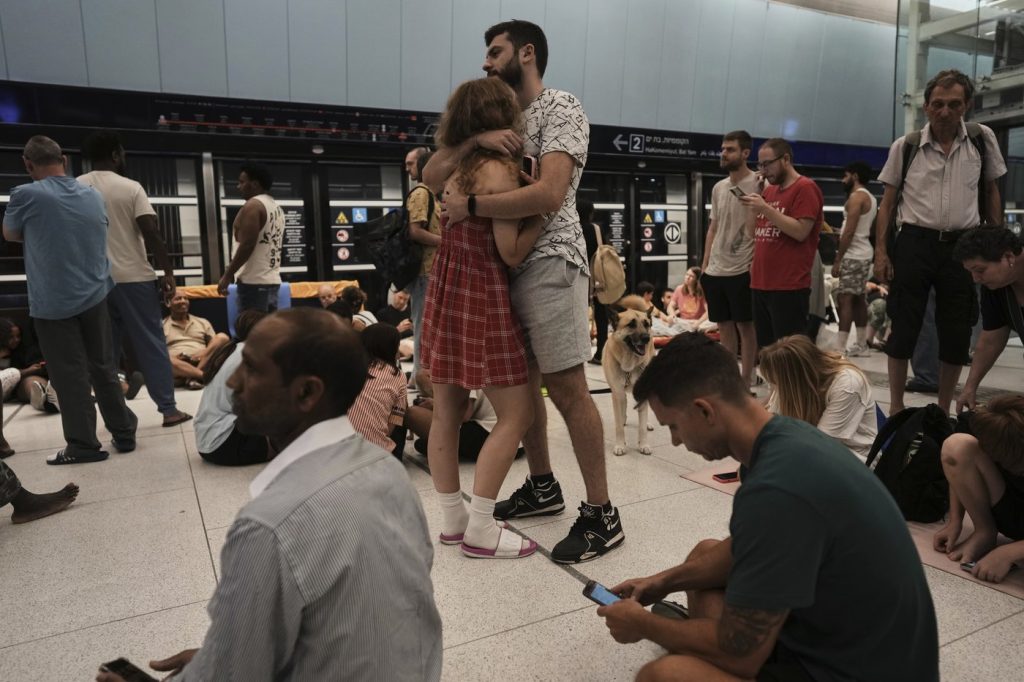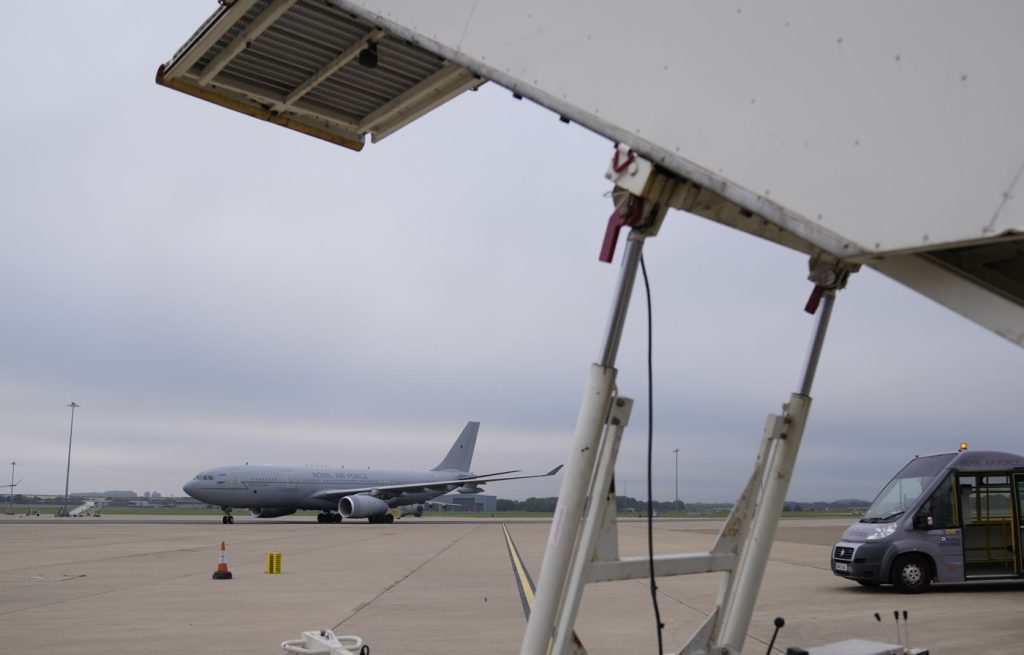RAMAT GAN, Israel (AP) – In the midst of an ongoing conflict between Israel and Iran, Aziza Melech, a 34-year-old event planner, finds a rare moment of peace while resting on an inflatable mattress in an underground station of Israel's light rail system. The war, which escalated a week ago with Israeli airstrikes on Iran, has forced many families, foreign workers, and young professionals to seek refuge in these stations each night.
As air raid sirens sound, alerting residents to the threat of Iranian missile strikes, people have filled these underground spaces with mattresses, sleeping bags, snacks, and even pets. On a recent Wednesday night at a station straddling Tel Aviv and Ramat Gan, children nestled with stuffed animals while adults entertained themselves with tablets loaded with movies, all while pizza boxes made the rounds.
Melech, who is spending her first night sleeping at the station, is accompanied by her friend, Sonia Shraibmen. "We’re not sleeping because of the anxiety and because of the sirens that are happening during the nights," Shraibmen shared. The fear has become palpable; just that morning, she experienced a fall while hurrying to a nearby shelter and resolved to find a safer, more stable place to spend the nights.
Reflecting on the current situation, Melech mentioned how the scene of hundreds of pajama-clad people reminded her of her grandfather’s stories from World War II. “Now, we’ll be able to tell our grandkids about this,” she stated, highlighting the gravity of their situation amid a modern war.
The hostilities began on June 13, 2025, when Israel executed airstrikes on Iranian military and nuclear installations, targeting high-ranking generals and nuclear scientists. Recent reports from a Washington-based Iranian human rights organization indicate that over 600 individuals have died in Iran, including more than 200 civilians, and more than 2,000 have been injured. In Tehran, civilians have similarly sought shelter in metro stations as missiles rain down above.
In retaliation, Iran has launched approximately 450 missiles and over 1,000 drones at Israel, resulting in 24 fatalities and hundreds of injuries. These attacks have destroyed various sites, including residential buildings, offices, and hospitals, leading many people to rethink their escape plans when sirens wail.
The Tel Aviv light rail, now non-operational due to the ongoing combat, features several underground stations that have transformed into sleeping quarters. Along with the hundreds who choose to sleep in them, thousands more flock to the stations whenever a siren is triggered, filling any available space not occupied by mattresses.
Many of the nighttime occupants are foreign workers residing in older apartment buildings that lack adequate shelters. While newer constructions in Israel feature reinforced safe rooms capable of withstanding rocket attacks, the ballistic missiles being fired by Iran are far more powerful. Furthermore, access to shelters is especially limited in poorer and predominantly Arab neighborhoods.
Babu Chinabery, a home health aide from India, expressed his concerns about the strength of the missiles, explaining that his decision to seek shelter in the station stems from fear. Having lived in Israel for ten years, he is familiar with the sirens, but the current level of anxiety is unprecedented. "It’s very difficult, that’s why we’re coming to sleep here," he remarked.
Notably, the light rail stations are not the only places where individuals are turning for refuge. Around 400 people are also utilizing an underground parking garage at a main mall for shelter. In addition, mutual aid groups have constructed over 100 tents in the space to offer residents a measure of privacy during these harrowing nights.
Another option, albeit sparsely populated, is the Tel Aviv Central Bus Station, where an underground atomic shelter has been reopened for public use for the first time in years. Despite being one of the safest locations during missile attacks, the shelter’s dilapidated state—characterized by infestations and standing water—has led to minimal interest from the public.
Roi Asraf, 45, has been sleeping at the Ramat Gan train station with his wife and three-year-old daughter for several nights, despite having a safe room at home. "I don’t like to take unnecessary risks," he explained. Their routine now involves bathing their daughter and donning pajamas before heading to the station each evening by 7 p.m. Local volunteers are providing entertainment for children, which aids in settling them for the night.
Asraf hopes for a swift resolution to the conflict but expresses his support for Israel's military moves against Iran. He stated, "If I have to sleep a week of my life in a train station for everything to be safer, I’m willing to do it," indicating a willingness to endure discomfort for the sake of safety during these tumultuous times.












